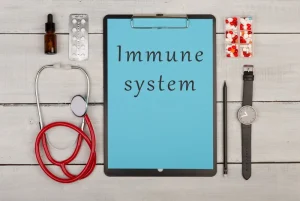
Heavy drinking tends to cause more serious intoxication and may eventually cause serious health issues, such as blackouts or kidney failure. During the recovery period, a person may experience a depressed mood and appetite, discomfort, and memory problems. Even after a person is released from hospital care, it can take up to a month for them to feel normal again. It may seem like a person has to drink a lot to get to this stage.

Management of alcoholic hepatitis
Do not wait for the person to have all the symptoms, and be aware that a person who has passed out can die. Don’t play doctor—cold showers, hot coffee, and walking do not reverse the effects of alcohol overdose and could actually make things worse. Alcohol use and taking opioids or sedative hypnotics, such as sleep and anti-anxiety medications, can increase your risk of an overdose.
Clinical features of AAI
In the Church of Jesus Christ of Latter-day Saints, alcohol consumption is forbidden,[52] and teetotalism has become a distinguishing feature of its members. Jehovah’s Witnesses allow moderate alcohol consumption among its members. In addition to respiratory failure and accidents caused by its effects on the central nervous system, alcohol causes significant metabolic derangements. https://ecosoberhouse.com/ Hypoglycaemia occurs due to ethanol’s inhibition of gluconeogenesis, especially in children, and may cause lactic acidosis, ketoacidosis, and acute kidney injury. Most people call this stage of intoxication being “tipsy.” A person’s BAC at this stage might range from 0.03 to 0.12 percent. Inpatient treatment takes place at a licensed residential treatment center.
Why Should We Be Concerned About AUD and Alcohol Addiction?

Of course, the severity of a person’s symptoms will depend on how much they have had to drink. The state of intoxication from alcohol is commonly known as being drunk. It is a temporary condition that comes with both physical and behavioral changes. It results from the consumption of an excessive amount of alcohol within a relatively brief time. When one consumes alcohol at a faster rate than their body can metabolize it, they become intoxicated.

- It takes about 1 hour for the average adult to process one unit of alcohol, which is 10 milliliters (ml) or 8 grams.
- Consider talking with someone who has had a problem with drinking but has stopped.
Scaling these risky BAC thresholds is not as difficult as some might think. Because it takes time for alcohol to have an effect on the body, consuming the large amounts stages of alcohol intoxication required to reach these BAC levels can occur while the person is still reasonably sober. It can lead to complications such as choking, brain damage, and even death.
- It’s important to remember that a person with alcohol poisoning may not have all the signs and symptoms.
- Choking on one’s vomit would be disastrous and may even be fatal, so we have to monitor people reaching this stage closely.
- During the recovery period, a person may experience a depressed mood and appetite, discomfort, and memory problems.
- Breath and blood tests measure the levels of alcohol and other substances in the body.
Stage 6: Death
When the individual does not consume alcohol regularly, they may experience withdrawal symptoms and intense cravings. Genetic, psychological, social and environmental factors can impact how drinking alcohol affects your body and behavior. Theories suggest that for certain people drinking has a different and stronger impact that can lead to alcohol use disorder. Alcohol intoxication, also referred to as drunkenness, ethanol intoxication, or alcohol poisoning in severe cases, is a temporary condition caused by drinking too much alcohol.
- It is important to pace oneself while drinking because the effects of alcohol are not instant.
- In any case, it’s unlikely that the paramedics or hospital team will call the police.
- As blood alcohol concentration (BAC) increases, so does the effect of alcohol—as well as the risk of harm.
- But if you drink a lot in a short time, your liver may not be able to keep up.
When is Alcohol Intoxication a Sign of Alcoholism?
More on Substance Abuse and Addiction

